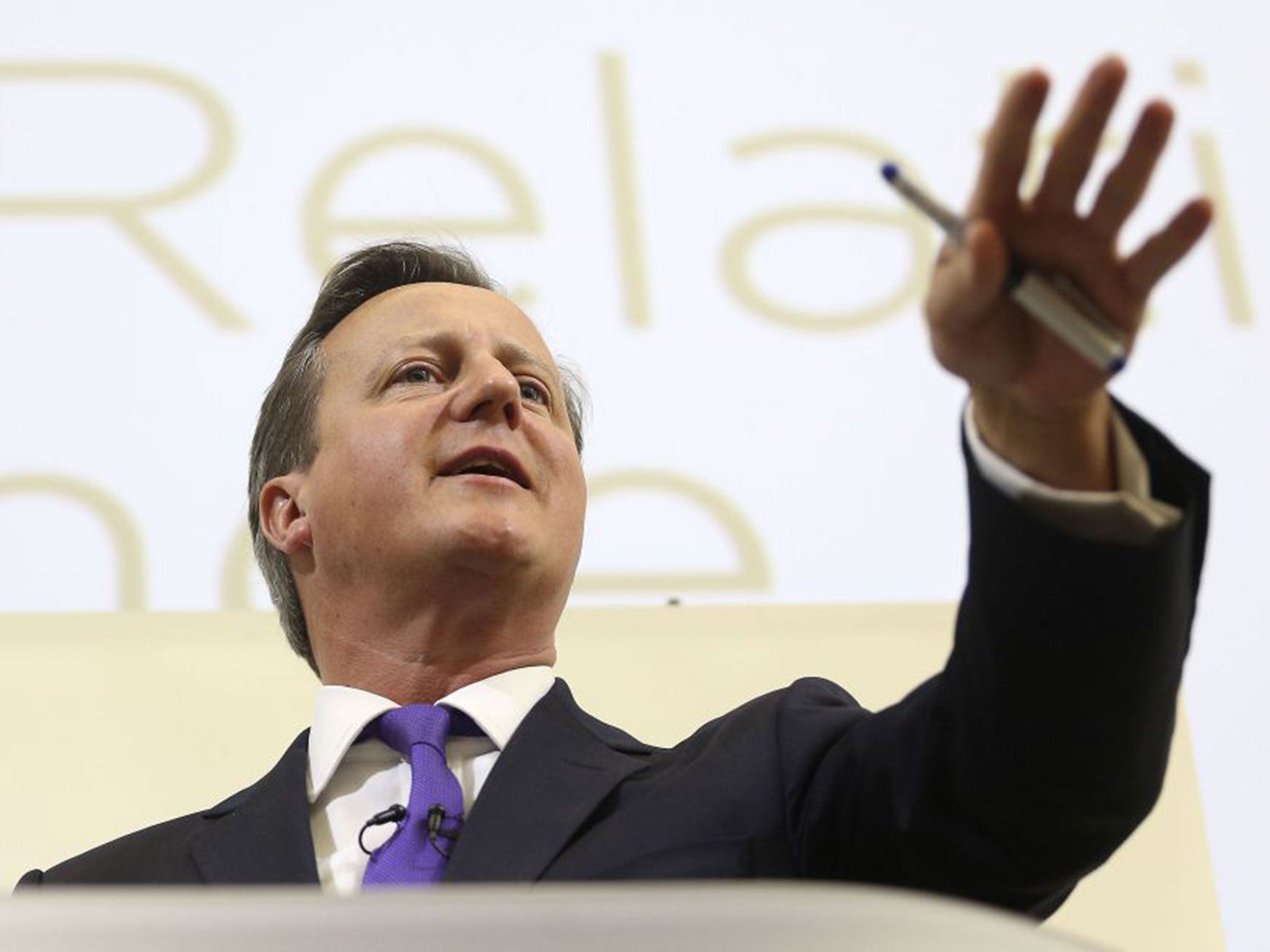Cameron plans age-rating system for graphic online music videos

Your support helps us to tell the story
From reproductive rights to climate change to Big Tech, The Independent is on the ground when the story is developing. Whether it's investigating the financials of Elon Musk's pro-Trump PAC or producing our latest documentary, 'The A Word', which shines a light on the American women fighting for reproductive rights, we know how important it is to parse out the facts from the messaging.
At such a critical moment in US history, we need reporters on the ground. Your donation allows us to keep sending journalists to speak to both sides of the story.
The Independent is trusted by Americans across the entire political spectrum. And unlike many other quality news outlets, we choose not to lock Americans out of our reporting and analysis with paywalls. We believe quality journalism should be available to everyone, paid for by those who can afford it.
Your support makes all the difference.Online music videos that show “graphic content” will be forced to carry a cinema-style age rating under Government plans announced by David Cameron.
Starting from the autumn, record labels will submit music videos to the British Board of Film Classification (BBFC) to be categorised into 12, 15 or 18 age ratings.
This information would then be included in video codes so that online media outlets such as YouTube and Vevo could offer a filtering service, based on the ratings, allowing parents to block certain content from their children.
However, the move raises questions over how the huge volume of international music videos that appear online could be caught and filtered by the new system.
Speaking yesterday, Mr Cameron said the move was necessary because helping families with parenting “shouldn’t stop at childbirth”.
“To take just one example: bringing up children in an internet age, you are endlessly worried about what they are going to find online,” he said.
“So we’ve taken a big stand on protecting our children online.
“We’re making family friendly filters the default setting for all new online customers, and we’re forcing existing customers to make an active choice about whether to install them.
Mr Cameron added: “We shouldn’t cede the internet as some sort of lawless space where the normal rules of life shouldn’t apply.”
The announcement comes after mounting concern that some online music videos, such as the highly controversial video to Robin Thicke’s “Blurred Lines”, which features multiple nude female models, are too easily accessible by children.

The BPI, which represents the UK’s recorded music industry, said it agreed with the Government’s plans and that music videos should be “made available to the public in a responsible way that is sensitive to the needs and concerns of younger viewers and their parents”.
The Prime Minister, who in his speech to the Relationships Alliance admitted he was “far from the perfect father and husband”, revealed his own children had in the past been “disappointed because they haven’t been able to do something or see something”.
He continued: “But that is part of what being a parent is about – being able to deploy the use of the word no and sometimes even to deploy the off switch on the television, unpopular as that can sometimes be, and sometimes ineffectual because they find another screen somewhere to switch on.”
Mr Cameron also announced a number of new measures designed to facilitate adoption in the UK.
He said he was looking to revamp a system which in recent times had become “too difficult, too bureaucratic and too time-consuming,” consequently putting off “too many loving couples” who had been looking to adopt.
A new adoption fund, worth in excess of £19m, is to be created by the Government, while adopters are to be awarded the same rights as birth parents with regards to adoption pay and leave.
Mr Cameron added that adopters would also be given the right to take leave from work to bond with a child before they actually adopt them. There will also be a £200m investment to reform and improve local authority adoption services, along with a £17m boost to the voluntary sector.
He also said the Government is reviewing whether details of mothers should be included on marriage registers as well as fathers, as this “clearly does not reflect modern Britain and it is high time the system was changed”.
Join our commenting forum
Join thought-provoking conversations, follow other Independent readers and see their replies
Comments